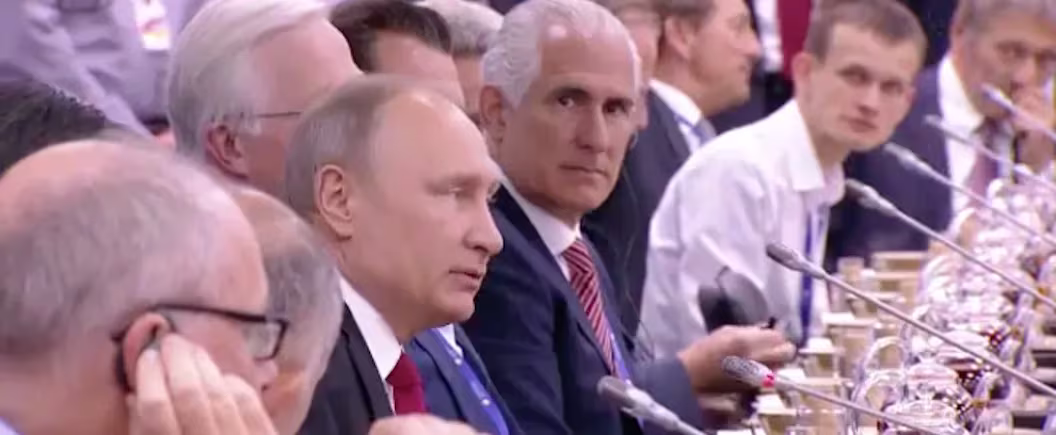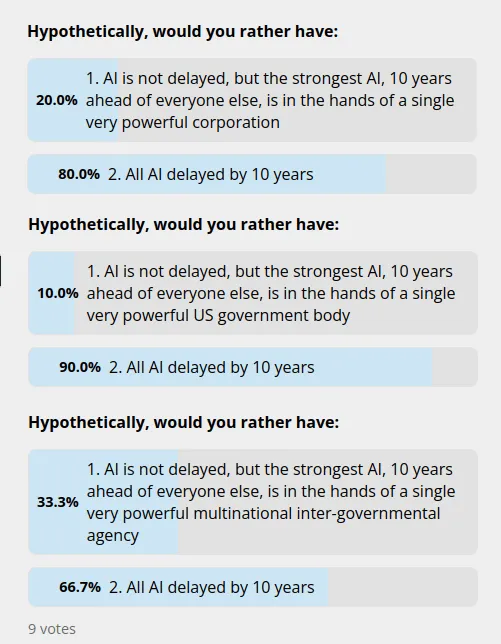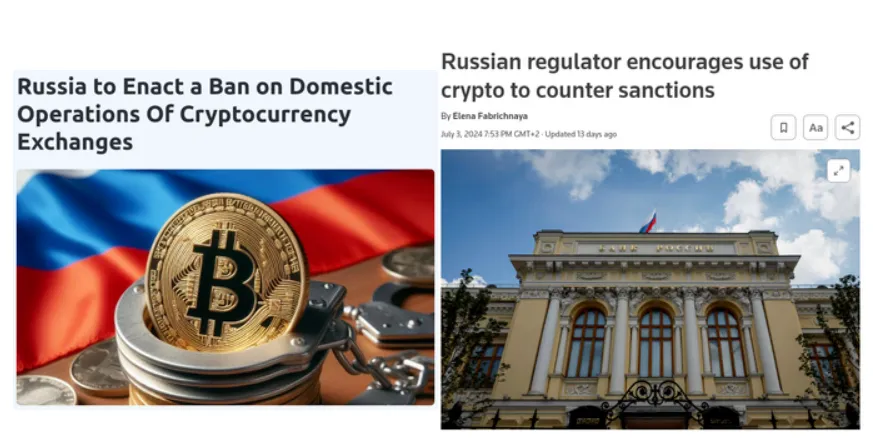Compiled by GaryMa Wu Blockchain about Blockchain
Original link:
https://vitalik.eth.limo/general/2024/07/17/procrypto.html
Over the past few years, “crypto” has become an increasingly prominent topic in political policy, with various jurisdictions considering regulating various actors in blockchain activity in various ways. This includes the EU’s Markets in Crypto-Assets (MiCA), the UK’s regulatory efforts on stablecoins, and the complex legislation and attempted regulation by enforcement we’ve seen in the US by the SEC. Many of these bills appear broadly reasonable in my opinion, despite concerns that governments will take extreme measures, such as treating nearly all tokens as securities or banning self-hosted wallets. In the wake of these concerns, more and more members of the crypto community are becoming more politically active and deciding who to support based almost entirely on whether political parties and candidates are willing to be tolerant and friendly to “crypto.”
In this article, I argue against this trend, specifically because I believe that making decisions in this way carries a high risk of violating the values that brought you into crypto in the first place.

With Vladimir Putin in 2018. At the time, many in the Russian government expressed a willingness to be “open to the crypto industry.”
The “Crypto Industry” Is More Than Just Cryptocurrency and Blockchain
There is often a tendency in crypto to focus excessively on “money,” arguing that the freedom to hold and spend money (or, if you prefer, “tokens”) is the most important political issue. I agree that there is an important battle to be fought here: in order to do anything important in the modern world, you need money, so if you can block anyone from getting money, you can arbitrarily block your political opposition. The right to spend money privately, which Zooko (founder of Zcash) has tirelessly advocated for, is equally important. The ability to issue tokens could greatly enhance people’s ability to build digital organizations that actually have collective economic power and do things. But the almost exclusive focus on cryptocurrencies and blockchains is much harder to defend, and importantly, this is not the idea that crypto was created in the first place.
What initially created the crypto industry was the cypherpunk movement, a broader techno-libertarian ethos that advocated for the protection and enhancement of individual freedoms through free and open technology. Back in the 2000s, the main theme was fighting restrictive copyright legislation pushed by corporate lobbying groups like the RIAA and the MPAA, known to the internet as “MAFIAA.” One famous legal case that sparked a lot of outrage was Capitol Records, Inc. v. Thomas-Rasset, where the defendant was forced to pay $222,000 in damages for illegally downloading 24 songs through file-sharing networks. The main weapons in the battle were torrent networks, encryption, and internet anonymization. One lesson learned early on was the importance of decentralization. As Satoshi explained in one of his few public political statements:
“You won’t find solutions to political problems in cryptography.
Yes, but we could win an important battle in the arms race and gain a new realm of freedom in a few years.
Governments are good at chopping off the heads of centrally controlled networks like Napster, but pure P2P networks like Gnutella and Tor seem to be holding their ground.”
Bitcoin was seen as an extension of this ethos to internet payments. There was even an early equivalent of “regen culture”: Bitcoin was an extremely simple way to make payments online, and therefore could be used to organize ways to compensate artists for their work that didn’t rely on restrictive copyright laws. I was personally involved in this: when I wrote for Bitcoin Weekly in 2011, I developed a mechanism where we would publish the first paragraph of two new articles I wrote, then keep the rest of the content private until the total donations to a public address reached a certain specified number of BTC, and then we would publish the entire content.
The point of all this is to provide context for the mentality that created blockchains and cryptocurrencies in the first place: freedom is important, decentralized networks are good at protecting freedom, and money is one important area where such networks can be applied — but it’s only one of several important areas. And, indeed, there are several important areas where you don’t need decentralized networks at all: instead, you just need cryptography and one-to-one communication applied correctly. The idea that freedom to pay is core to all other freedoms is an afterthought — an ideology that a cynic might say justifies “rising numbers.”
I can think of at least a few other technological freedoms that are just as “fundamental” as the freedoms associated with crypto tokens:
● Freedom and privacy of communication: This includes encrypted messaging as well as pseudonymity. Zero-knowledge proofs can ensure important authenticity claims (e.g., a message was sent by a real person) while protecting pseudonymity, so use cases supporting zero-knowledge proofs are also important here.
● Privacy-friendly digital identity freedom: There are some blockchain applications here, the most notable being allowing revocation and various “prove-to-denial” use cases, but the reality is that hashing, signatures, and zero-knowledge proofs are used ten times more often.
● Freedom of thought and privacy: This will become increasingly important in the coming decades as more and more of our activities will be mediated at a deeper level through AI interactions. Unless something drastic changes, the default path is that more and more of our thoughts will be mediated and read directly by the servers of centralized AI companies.
● High-quality information acquisition: Social technologies help people form high-quality opinions on important topics in an adversarial environment. I’m personally bullish on prediction markets and community annotations; you may have a different opinion on the solution, but the point is that the topic is important.
The above list is just about technologies. The goals that drive people to build and participate in blockchain applications often have implications beyond technology: if you care about liberty, you might want your government to respect your freedom to have the home you want. If you care about building a more efficient and equitable economy, you might want to study its impact on housing, and so on.
My basic point is this: if you are the kind of person who is willing to read beyond the first paragraph of this article, you are not in crypto for the sake of the industry itself, but for the deeper goals. Don’t support cryptocurrencies for the sake of the industry, support those deeper goals, and the whole set of policy implications they imply.
Current “support for the crypto industry” initiatives, at least as of today, do not think in this way:

The main bill “supports the crypto industry.” There is no attempt at all to judge how politicians are doing with regard to cryptography and technological freedoms beyond cryptocurrency.
If a politician supports your freedom to trade tokens, but they know nothing about the subject above, then their thought process behind supporting the freedom to trade tokens is very different from mine (and potentially yours). This in turn means they may come to different conclusions than you do on issues that you will care about in the future.
Crypto and Internationalism

Ethereum node map, source ethernodes.org
One social and political cause that I, and many cypherpunks, have always held dear is internationalism. Internationalism has been a key blind spot for national egalitarian politics: they implement all sorts of restrictive economic policies to try to “protect domestic workers,” but they often pay little or no attention to the fact that two-thirds of global inequality is between countries, not within them. A popular recent strategy has been to try to protect domestic workers through tariffs; but even when tariffs are successful in achieving this goal, they unfortunately often come at the expense of workers in other countries. A key liberating aspect of the internet is that it theoretically makes no difference between the richest and the poorest countries. Once we get to the point where most people have a basic standard of internet access, we can have a more equal and global digital society. Cryptocurrency extends these ideals to the world of money and economic interactions. I have personally seen many cases where cryptocurrencies have significantly contributed to the balance of the global economy.
But if I care about “crypto” because it’s good for internationalism, then I should also judge politicians and their policies based on how much they care about the outside world. I won’t give specific examples, but it should be obvious that many politicians are poor at this.
Sometimes, this is even about the “crypto industry” itself. While attending EthCC recently, I received messages from multiple friends who told me that they were unable to attend because it had become more difficult to obtain a Schengen visa. Visa availability is a key consideration in deciding where to host events like Devcon; the US also scores low on this metric. The crypto industry is uniquely international, so immigration law is crypto law. Which politicians and which countries recognize this?
Supporting crypto now doesn’t mean you’ll support crypto five years from now
If you see a politician supporting the crypto industry now, one thing you can do is look up what they thought about crypto itself five years ago. Similarly, look up what they thought about related topics like encrypted messaging five years ago. In particular, try to find a topic where "supporting freedom" doesn't align with "supporting corporations"; the copyright wars of the 2000s are a good example. This can be a good guide to how their views might change five years from now.
The Difference Between Decentralization and Acceleration
One way that divergence can occur is when the goals of decentralization and acceleration diverge. Last year, I conducted a series of polls that essentially asked people which they valued more in the context of AI. The results clearly favored the former:

Regulation is often harmful to both decentralization and acceleration: it makes the industry more centralized and slows it down. Much of the most harmful crypto regulation (“mandatory KYC for everything”) is certainly moving in this direction. However, there is always the possibility of diverging goals. For AI, this is already happening. An AI strategy focused on decentralization focuses on running smaller models on consumer hardware, avoiding the dystopia of privacy and centralized control, in which all AI relies on centralized servers that monitor all our actions and whose operators’ biases shape the AI’s output in ways we cannot escape. One advantage of a strategy focused on small models is that it is more consistent with AI safety, because smaller models are inherently more limited in their capabilities and more likely to act like tools than independent agents. On the other hand, an AI strategy focused on acceleration is enthusiastic about everything from the smallest micro models running on tiny chips to Sam Altman’s dream $7 trillion clusters.
As far as I know, we haven’t seen this kind of massive split in crypto yet, but it feels like it could happen someday. If you see a “pro-crypto” politician today, it’s worth exploring their underlying values to see which side they would prioritize if a conflict arose.
Russia’s Crypto-Friendly View
There is a common “crypto-friendly” style that is worth being wary of. A prime example is modern Russia.
The recent Russian government policy on the crypto space is very simple and has two aspects:
● When we use encryption, it helps us circumvent other people’s restrictions, so that’s good.
● When you're in the crypto space, it makes it harder for us to restrict or monitor you, or put you in jail for 9 years because you donated $30 to Ukraine, so that's not good.
Below are examples of each type of action taken by the Russian government:

Another important conclusion is that if a politician supports the crypto industry today, but they are the type of person who is very power-seeking, or willing to curry favor with power-seeking people, their crypto advocacy may look like this in a decade. This will almost certainly be the case if they, or the people they curry favor with, actually do consolidate power. Also, be aware that the strategy of staying close to dangerous actors to "help them become better" often backfires.
But I like [the politician’s] entire platform and perspective, not just because they’re pro-crypto! So why shouldn’t I be enthusiastic about their crypto stance?
The political game is far more complex than “who wins the next election,” and there are many levers that your words and actions affect. In particular, by publicly giving the impression that you support “pro-crypto” candidates simply because they are “pro-crypto,” you are helping to create an incentive gradient that makes it clear to politicians that they only need to support “crypto” to gain your support. It doesn’t matter if they also support banning crypto messaging, are a power-seeking narcissist, or are pushing bills to make it harder for your Chinese or Indian friends to attend the next crypto conference — politicians just need to make sure you can easily trade tokens.
Whether you’re someone with millions of dollars ready to give away, someone with millions of Twitter followers ready to influence, or just an average person, you can help create a more glorious incentive gradient.
If a politician supports crypto, the key question is: are they doing it for the right reasons? Do they have a vision for 21st century technology, politics, and economics that aligns with yours? Do they have a good, positive vision that goes beyond near-term concerns like “beat the bad other tribe”? If they do, great: you should support them, and make it clear that this is why you support them. If not, stay out of it entirely, or find a better force to ally with.







